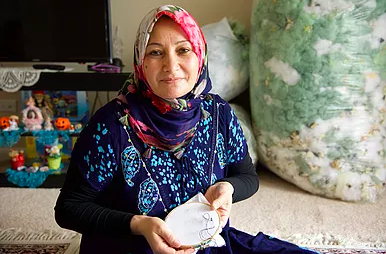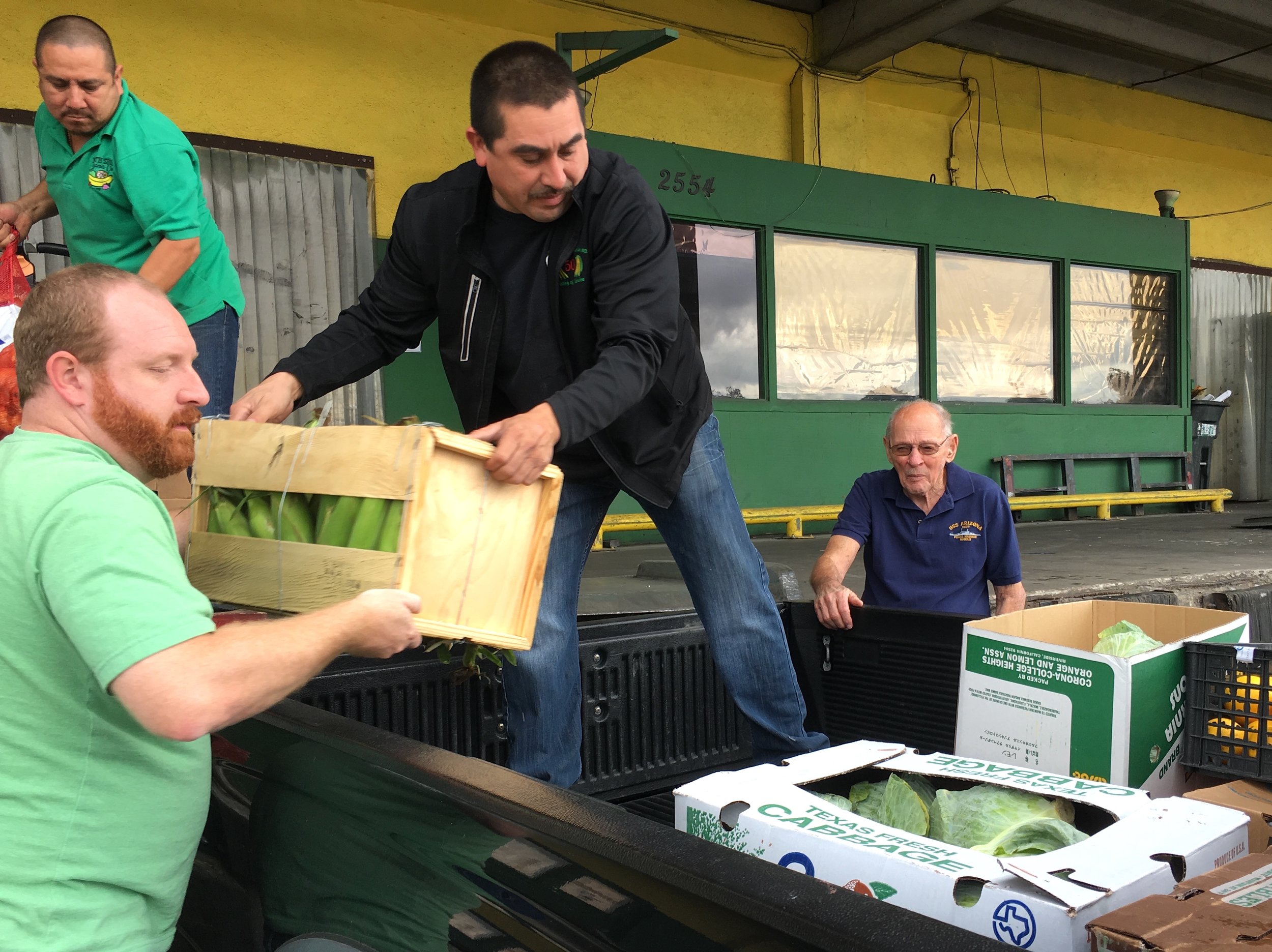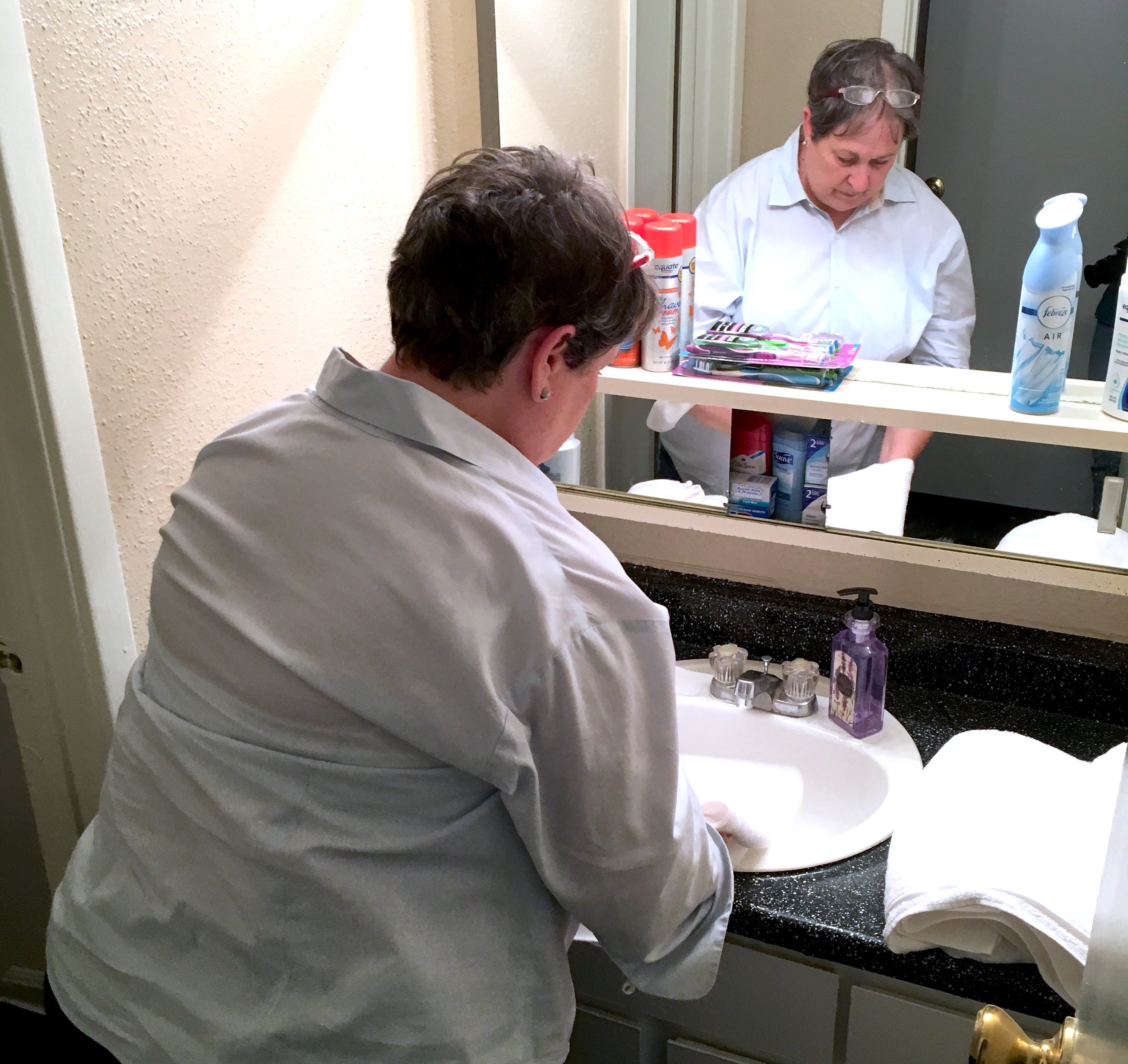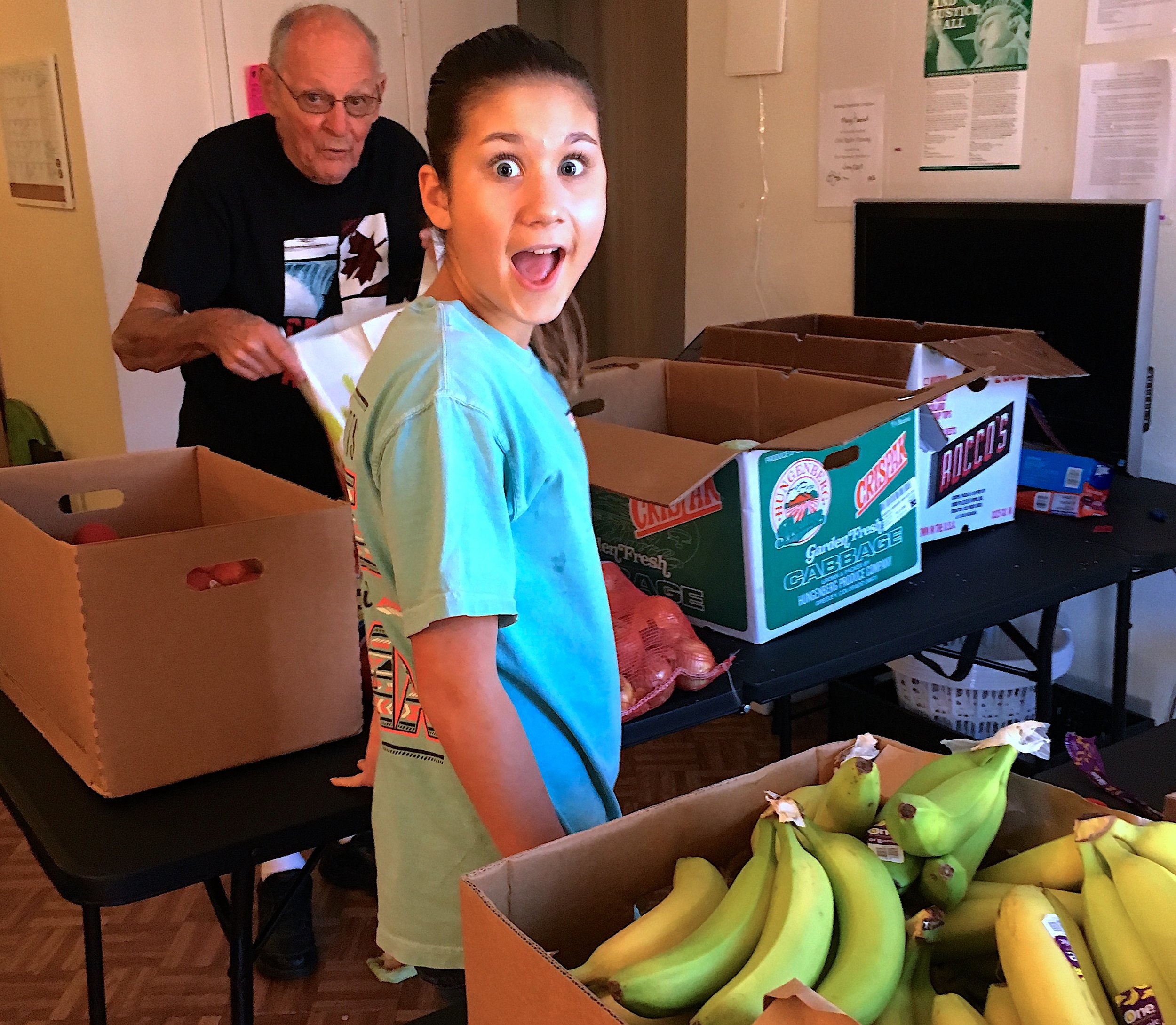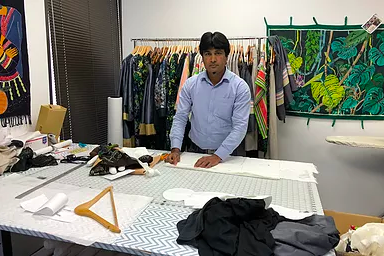Come with me on a short trip to far off country: No one speaks English here, and they aren’t really interested in learning. In fact, they don’t even use the alphabet, so you’re completely illiterate. The foods, celebrations, and modes of transportation are completely foreign, so good luck understanding what’s going on around you.
Plus—I forgot to mention—I didn’t bring any money. Though you may be a skilled professional now, you’d be lucky to get a minimum-wage job. This new country is a land full of opportunities, but you can’t seem to access any of them. Now imagine that while we were gone your home burned down and your passport was revoked. Welcome to your new home! You are now a refugee.
With the approach of World Refugee Day (June 20th), I want us to think a little about the losses, big and small, that refugees here in Houston experience every day and the ways some of our people are at work to make those losses a little less painful. As one of the largest refugee-receiving cities in the US, there are so many ways to share Christ’s love with “the least of these,” and we’re proud to see our people doing just that.
A Loss of Independence
The first few years are the hardest for refugee families as they need the barest of necessities. Although they are given food stamps, the allotment will not last a month, and they don’t provide for inedible essentials—soap, shampoo, toilet paper, diapers, feminine hygiene products, laundry detergent. Refugees arrive with two suitcases—at best—and no money. They don’t know the language or the culture and must rely on others to help them maneuver their new home.
UBA’s church consultant, Sally Hinzie, has experienced this firsthand while working with Margie Randall of Loaves & Fishes. Sally and her granddaughter often volunteer to deliver healthy food to refugees. When the city was flooded one time, they braved high waters to provide food for a single, pregnant, and bedridden mother of six. The first group of incoming refugees she worked with were Bhutanese Hindus. The next wave were Afghan Muslims. In their need, God used vegetables to help those who would have never heard of Jesus come to faith in Him.
A Loss of Expertise
Nell Green, a CBF field personnel in Houston, has also seen the difficulties skilled refugees face when they cannot find work in their trade. She partners with Interfaith Ministries to help refugees become self-sufficient and productive Houstonians. In her work, she met several extremely gifted tailors who couldn’t find jobs due to limited language skills. They struggled to provide for their families and worked whatever jobs they could find. So, Nell and her daughter started Threads by Nomad to make use of their skills.
Through this company, Nell and her daughter have provided a fair wage for refugees without language skills or religious connections. Refugees need only have a skill or be willing to learn one. They have, in turn, have become responsible for it and all who work there. After breaking her leg one day, Nell needed extra help from one of the main tailors. She offered to pay him, but he refused, saying, “threads by Nomad is my company, too! You are my family and you don’t get paid to help your family.”
A Loss of Insight
In unfamiliar circumstances, such as natural disasters, refugees are even more at a loss for what to do, who to call, and who to trust. One refugee, who arrived right before a bad storm, texted Nell Green in a panic as she was on hold with 911. She sent updates as water was coming into the parking lot, over the cars, up her balcony, and halfway up her door. Her last text to Nell before her phone died read, “Are we going to die?” Fortunately, her American friends provided a lifeline to the necessary channels of help, and they were rescued.
After Rosharon was devastated by Hurricane Harvey, UBA volunteers came to rebuild this community, often called “little Cambodia” for its high concentration of Cambodian refugees. When they arrived, one resident was highly suspicious of the volunteers. They later learned that others had come to help, told the man they would return soon to finish the job, but never did. Several months later, he was still living in a shack made of little more than studs. UBA volunteers had to finish what work had been done and redo faulty wiring others had installed. The man said their help to him was like God showing up in his neighborhood.
What do you have to lose?
When we consider the everyday struggles of refugees, what we have lost to support them becomes a small sacrifice by comparison. With so many simple and enjoyable ways you can be involved with refugees in our city, what do you have to lose?
A Few Minutes:
Shop Threads by Nomad to support skilled refugees in Houston
A Few Hours:
Celebrate World Refugee Day with great food, dancing, and lots of information, June 20th, 6-8pm at the Houston Museum of Fine Arts.
Deliver vegetables with Sally Hinzie sally@ubahouston.org
Fill a container. About $100 can fill a container to make a house a home. A helpful list takes out the guesswork in providing what families really need.
Set up an apartment. One afternoon of set up can make an apartment look like home when refugees arrive.
A Few Days:
Volunteer with Houston Welcomes Refugees
Contact Nell Green bgreen@cbf.net, who can set you up with many ways to serve: Thanksgiving or Easter food baskets, preparing school backpacks, or helping with their Ready for School program that prepares preschool-age refugees and their parents for kindergarten.
Or More:
Adopt a family. Sign up with your church, small group, or family to meet a refugee family at the airport, and become their friends and cultural coaches for 3-6 months. Having a group of people to call, enjoy tea with, and practice English skills is a huge help. Often, this gospel hospitality opens a door to people who would likely never have heard of Jesus otherwise.
Marie Burrus is UBA's Communications Specialist. She manages, edits, and contributes content for UBA's blog, website, and social media outlets. Marie uses her Master's degree in Intercultural Studies and experience as a missionary in Burkina Faso to write on missions, outreach, culture, and the Christian life.


